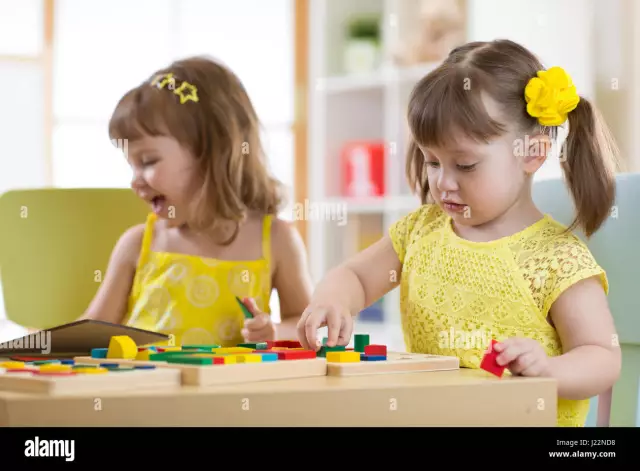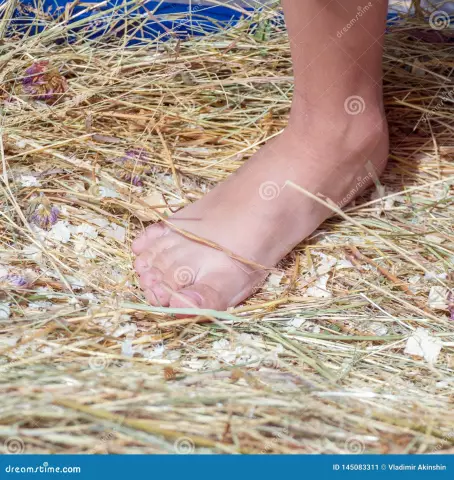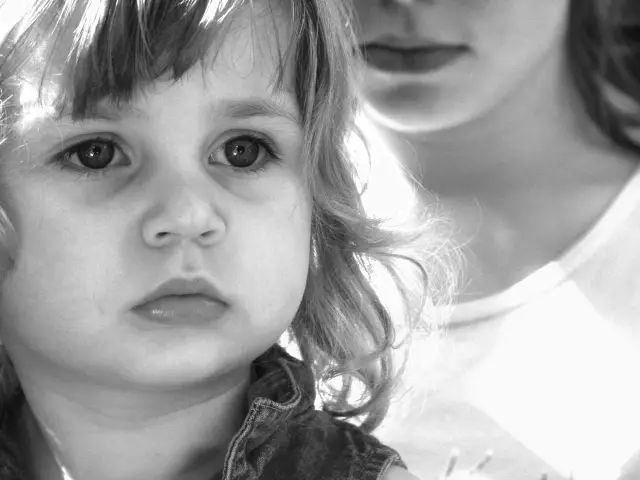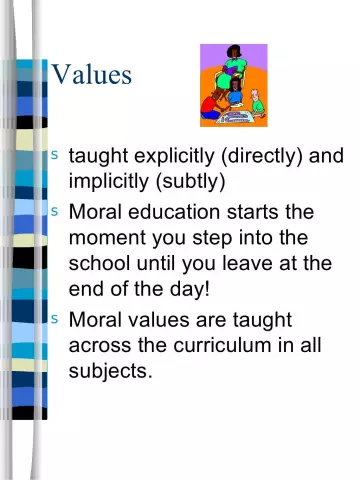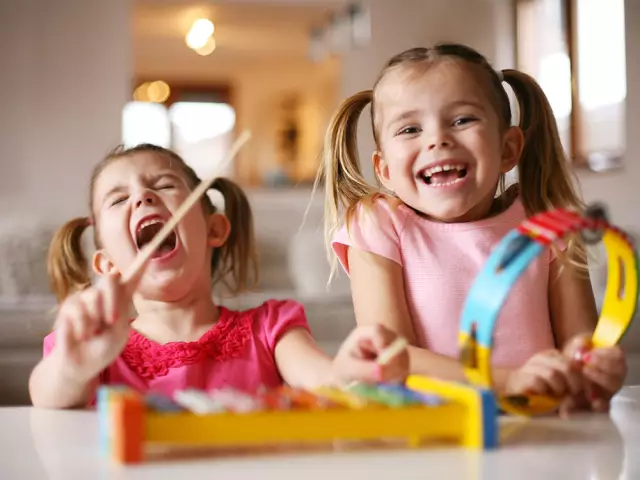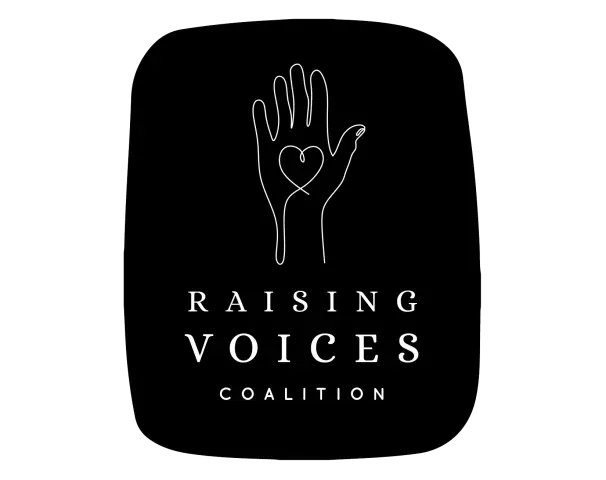- Author Rachel Wainwright wainwright@abchealthonline.com.
- Public 2023-12-15 07:39.
- Last modified 2025-11-02 20:14.
Play activities of preschool children

The play activity of preschool children is a significant social phenomenon, in which the development and culture of society as a whole are reflected.
In the process of playing, the child reproduces models of adult life, work and relationships, and also realizes his cognitive, aesthetic and moral needs. It is the play that allows the child, over time, to minimize the existing contradictions between his aspirations to be a full-fledged participant in the adult world and the available real opportunities.
In addition to the fact that play takes up a significant part of a child's free time, it serves as a means for qualitative changes in his self-awareness.
Development of play activity of preschoolers
The development of the play activity of preschoolers is primarily manifested in the role-playing character. The peculiarities of role-playing games are the use of some objects as substitutes for others, the individualization of one's own actions and their comparison with the actions of adults.
Close adults become a model for the child's playful behavioral reactions. The difference between the games of older preschool children from younger groups is that now the center of their game world is a person, society of people, their actions and relationships with each other. Directly or indirectly, but it is adults who play a coordinating role in children's play.
In the play activity of preschoolers, the process often becomes more important than the result, and its quality is determined by the amount of emotional and cognitive achievements obtained during the play. Often, the child directly or indirectly quotes the point of view of adults on the problems touched upon in the game, and in the game relations with friends he models their actions. Often, as a play plot, children tend to choose those questions that have to be solved by adults close to them. It goes without saying that they also use explicit or imaginary objects from the practice of adult life as play objects.
It is extremely important that the plots of the play activity of preschool children are not predetermined in advance, they are formed in real time by the children's collective imagination, thereby developing it. Quite often, in the course of the game, certain objects change their functions and begin to play other roles.
In the process of the role-playing activity of preschoolers, children's imagination forms images that are embodied through the development of game events. In addition to the plot, such a game has content, certain rules, provides for certain game actions, role relationships, often turning into real ones, as well as true objects and their substitutes.
Roles are an integral part of preschoolers' play. They reflect the child's view of the behavior of adults in certain situations and the norms accepted in society. For the game, children can choose both areas of adult life that are well known to them, and those that are of lively positive interest and stimulate thought.
When playing with peers, the child is forced to reckon with the point of view of other people or even entire groups, understand and accept their position and look at events through their eyes. For example, trying on the role of a mother, a girl learns to comprehend feelings of responsibility and care, begins to understand the role of obedience and mutual understanding.
Play interests of preschoolers
Professional games through the attractiveness of a particular type of activity help to understand the motivation of people's labor activity, its importance and a high degree of responsibility. The child is able to understand what a particular specialist is doing in his workplace. It is believed that the average older preschooler is familiar with at least ten professional spheres through play, and that he considers no more than two of them to be the closest to himself.
The rules of the game activity of preschool children dictate a certain framework for the behavior of the characters. Thus, the child is partly guided by his own position, but mainly learns to act in the proposed circumstances and restrain his own desires.
Compliance with the rules of the game refers to the deliberate social actions of a growing person. The rules allow for control and self-control. In the process of growing up, the child changes his attitude to the rules of the game from their complete rejection at a younger preschool age to active displeasure, when such rules are ignored by peers on the eve of school.
It is remarkable that preschoolers create the rules of the game based on the logic of familiar life connections, and their implementation is considered a necessity.
A prerequisite for the play activity of preschool children is the imaginary situation. Depending on how wide a child's outlook is, he is able to imitate various spheres of adult activity: family life, space flights, construction, and others. The more stories a preschooler is able to offer for the game, the longer the game becomes.
Children 5-6 years old are able to concentrate on the game plot for several hours and even days. Also, as they grow older, they give preference to certain game situations. Whereas in the younger preschool age, everyday topics prevail, on average, production circumstances are of greater interest, and older preschoolers are carried away by social and political scenarios, often intertwined with the plots of their favorite films or books.

The development of the play activity of preschoolers demonstrates noticeable progress as children from one age group move to another. Kids are not able to plan the development of the plot, and more often they repeat the same actions of adults (washing dishes, making cakes, etc.). Older children show creativity, and the most important in the game is the relationship between the players. Older children value the distribution of roles and the observance of the rules of the game.
Teaching preschool children to play
When teaching preschool children to play, some aspects must be taken into account. First of all, it should be understood that the context of the game allows a child of primary school age to act in a holistic manner, in accordance with the proposed circumstances. Only after gaining sufficient experience with the help of this kind of games, an older child is able to highlight the problems of play, and therefore perceive the tasks assigned to him in a playful form. When teaching preschool children to play in older groups, one should rely on the already formed skills of their collective activity.
YouTube video related to the article:
Found a mistake in the text? Select it and press Ctrl + Enter.

